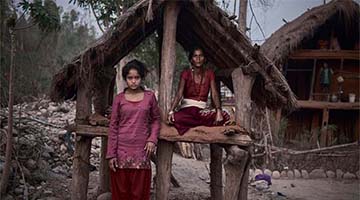Why study this course with LJMU?
- Qualify as a professional Youth Worker and gain a Level 6 degree while working in the field, offering you the perfect blend of academic learning and practical experience
- The Youth Work Degree Apprenticeship is based in the Centre for Educational Leadership in the School of Education
- Our up-to-date modules, designed in collaboration with industry experts, equip you with the knowledge and skills to thrive in contemporary youth work settings
- Gain hands-on experience in real-world youth work environments, ensuring you are well-prepared for the diverse challenges and opportunities in the field
- Benefit from personalised academic and professional support, ensuring you achieve your full potential while balancing work and study
- The course is designed to meet the National Youth Agency's professional standards, ensuring that you qualify as a recognized and competent Youth Worker upon graduation
About your course
Gain Practical Experience and Academic Excellence with a Youth Work Degree Apprenticeship at LJMU
Studying the Youth Work Degree Apprenticeship at Liverpool John Moores University offers a unique opportunity to gain practical, hands-on experience while earning an academic qualification.
This apprenticeship allows you to enhance your work with young people through the development of essential skills and knowledge, while being supported by experienced academic staff and tutors. You will benefit from the teaching team's strong connections with local youth services and community organisations, providing you with invaluable networking opportunities and exposure to real-world youth work challenges.
The course is designed to give you the flexibility of learning while earning, ensuring you can apply theoretical knowledge directly to your professional practice. You'll also have access to a wide range of resources, including a dedicated support network, workshops, and expert guidance from experienced youth work practitioners.
Studying at LJMU means being part of a vibrant and inclusive community committed to social change, making it the ideal place to build your future in youth work.
Course modules
What you will study on this degree
Further guidance on modules
Modules are designated core or optional in accordance with professional body requirements, as applicable, and LJMU’s Academic Framework Regulations. Whilst you are required to study core modules, optional modules provide you with an element of choice. Their availability may vary and will be subject to meeting minimum student numbers.
Where changes to modules are necessary these will be communicated as appropriate.
Core modules
Introduction to Youth and Community Work
20 credits
20 credits
The module provides students with a comprehensive understanding of the key concepts, principles, and theories of youth work. It explores the historical context, ethical considerations, and the role of youth workers in contemporary society. Additionally, the module discusses the importance of effective communication, partnership working, and reflective practice in youth work, including strategies for building positive relationships with young people and stakeholders within communities. Through a combination of theoretical learning, practical case studies, and reflective exercises, students will gain the necessary skills and knowledge to engage effectively in youth work practice.
Developing Professional and Academic Awareness
20 credits
20 credits
This module is designed to provide students with the essential skills necessary for success in their youth work course and future careers. The module covers a range of study skills, including academic writing, critical thinking, time management, and research skills. Additionally, students will learn about the importance of self-care and well-being in maintaining academic success. Through a combination of theoretical learning, practical exercises, and reflective activities, students will develop the skills and knowledge needed to excel in their studies and beyond.
Understanding Principles of Social Justice
20 credits
20 credits
The module is designed to provide students with a comprehensive understanding of the role of youth work in promoting social justice, fairness, equality, and inclusion for all young people. The module explores the historical context and development of youth work, analyses national and local plans and strategies relevant to youth work and young people, and examines theories and models for program planning, development, delivery, and evaluation. Students will also learn about project management tools and processes, cultural and community competency, and principles of anti-oppressive and anti-discriminatory practice in youth work. Through a combination of theoretical learning, practical exercises, and case studies, students will develop the knowledge, skills, and attitudes necessary to engage in youth work that is inclusive, equitable, and promotes social justice.
Engaging with Excluded Groups
20 credits
20 credits
This module delves into the multifaceted issue of social exclusion among young people, exploring its root causes, manifestations, and the role of youth workers in addressing it. Through a combination of theoretical frameworks, case studies, and practical exercises, students will gain a comprehensive understanding of the challenges faced by excluded groups, including homelessness, substance abuse, and mental health issues. They will also examine various interventions aimed at fostering inclusion and empowerment, such as education and skills training programs, mental health support services, and community outreach initiatives. By the end of the module, students will be equipped with the knowledge and skills necessary to engage with excluded groups effectively, promoting social justice and positive change within their communities.
Child and Adolescent Development
20 credits
20 credits
This module examines the multifaceted journey of child and adolescent development, exploring the intricate interplay between biological, cognitive, and social factors. From the prenatal stages through adolescence, students will examine the critical milestones and challenges that shape young individuals' growth and well-being. Drawing from diverse theoretical perspectives, including psychoanalytic and neuroscientific frameworks, the module will illuminate the complexities of development and the role of cultural, environmental, and socioeconomic influences. Through engaging discussions, readings, and assessment, students will gain a deeper understanding of the factors that contribute to variations in development and strategies for promoting positive outcomes across diverse contexts.
Policy and Practice in Youth Work
20 credits
20 credits
This module aims to provide students with an understanding of the policy frameworks that influence youth work practice. It will explore the roles and responsibilities of practitioners and politicians in addressing youth-related issues, and the ethical dilemmas and challenges that arise in the implementation of youth work policies. The module will also discuss differing perspectives on youth work policies and practices among practitioners and politicians, and the potential impacts of these perspectives on the provision of services and support for young people.
Core modules
Integrating Safeguarding Principles into Practice
20 credits
20 credits
This module is designed to equip professionals with the knowledge and skills necessary to effectively integrate safeguarding principles (including statutory guidance) into their practice. It covers key concepts such as risk assessment, confidentiality, and multi-agency working, providing learners with a comprehensive understanding of how to safeguard vulnerable individuals in a variety of settings. Through a combination of theoretical learning and practical application, participants will develop the confidence and competence to identify and respond to safeguarding concerns, ensuring the safety and well-being of those they work with.
Research in Practice
20 credits
20 credits
This module links to the 'Professional Projects' enquiry where they apply skills into a work based environments and will provide students with a comprehensive understanding of action research in the context of youth work. It will explore the principles, methodologies, and ethical considerations of action research, and how it can be applied to address real-world challenges faced by young people. The module will also examine the role of reflective practice in action research, and how findings can be used to inform and improve youth work practice and policy. Through a combination of theoretical learning and practical application, students will develop the skills and knowledge necessary to conduct action research projects that contribute to positive change in the lives of young people.
Understanding Contemporary Issues for Young People
20 credits
20 credits
This module will provide students with an in-depth understanding of the contemporary issues that impact young people's lives. It will explore topics such as mental health, social media, identity, and relationships, and examine the perspectives and experiences of young people in relation to these issues. The module will also focus on strategies for effectively engaging young people in discussions about these issues, fostering critical thinking, empathy, and understanding, and promoting dialogue and collaboration. Through a combination of theoretical learning and practical application, students will develop the skills and knowledge necessary to address the complex challenges facing young people today.
Youth Participation and Empowerment
20 credits
20 credits
This module is designed to equip youth workers with the knowledge, skills, and tools necessary to engage and empower young people in their communities. Through a combination of theoretical frameworks, practical strategies, and real-world examples, participants will explore the importance of youth participation and empowerment in community development, understand the challenges faced by young people today, and learn how to create safe and inclusive spaces for youth to thrive. The module will also examine the ethical considerations in working with youth, the role of community engagement, and the impact of global perspectives on youth participation and empowerment.
Mental Health and Wellbeing
20 credits
20 credits
This module aims to provide students with a comprehensive understanding of mental health and wellbeing in young people, focusing on the role of Child and Adolescent Mental Health Services (CAMHS) resources building on previous learning on child and adolescent development. Students will explore various aspects of mental health, including common disorders, risk factors, protective factors, and evidence-based interventions. They will also learn how to create a support pack for CAMHS resources, which can be used to promote mental health and wellbeing among young people.
Professional Project
20 credits
20 credits
This module is designed to provide students with the skills and knowledge necessary to undertake a professional research project. Building on their previous learning of research methods, students will apply this knowledge to their own research project, evaluating the effectiveness of different methods and approaches. The module will also cover ethical considerations in research and the importance of critical thinking and reflection.
Core modules
Youth Work Leadership and Management
20 credits
20 credits
This module is designed to provide students with a comprehensive understanding of leadership and management principles within the context of youth work. It will explore various leadership theories and models, as well as practical strategies for effective management in youth work settings. Students will critically engage with key texts and case studies to develop their leadership and management skills, with a particular focus on ethical considerations and the promotion of positive youth development.
Reflective Practice and Professional Development
30 credits
30 credits
This module aims to develop students' understanding of reflective practice and its importance in professional development. It will explore various models of reflection and their application in youth work practice. Students will be encouraged to critically reflect on their own practice and develop strategies for ongoing professional development.
Applied Education Strategies
20 credits
20 credits
This module explores the multifaceted role of education within the realm of youth work, with a particular emphasis on the complementary nature of informal and non-formal education alongside formal education systems. It provides a critical examination of existing educational approaches, aiming to identify their strengths and limitations. Furthermore, it seeks to justify the pivotal role of informal and non-formal education in the holistic development of young individuals, emphasising their capacity to foster experiential learning, critical thinking, and socio-emotional skills. By the module's conclusion, students are expected to have acquired the skills necessary to craft tailored educational interventions, drawing upon theoretical frameworks and evidence-based practices. These interventions are designed to address the diverse learning needs of young people and to support their holistic development within the context of youth work settings.
Diversity in young people
20 credits
20 credits
This module is designed to equip students with the knowledge, skills, and attitudes necessary for effective youth work in diverse communities. This will prepare apprentices for their end point assessment by exploring the multifaceted nature of diversity, including but not limited to race, ethnicity, culture, religion, gender, sexual orientation, socioeconomic status, and ability. It examines the historical and contemporary contexts of diversity in youth work, emphasising the importance of cultural competence, inclusivity, and social justice.
End Point Assessment
30 credits
30 credits
Professional accreditation/links
The Youth Work Degree Apprenticeship at LJMU is fully accredited by the National Youth Agency (NYA), ensuring that the program meets the highest standards of quality and professionalism in youth work. This accreditation reflects the course’s commitment to delivering a comprehensive, industry-relevant education that aligns with national frameworks and guidelines for youth work practice. Graduates of the program will receive a qualification that is recognised and respected across the sector, enhancing their career prospects and ensuring they are equipped with the skills and knowledge required to make a positive impact on young people's lives.
Excellent facilities and learning resources
Teaching for the Youth Work Degree Apprenticeship at LJMU will be delivered through a hybrid model, combining both online and in-person learning. This flexible approach allows students to benefit from the convenience of online lectures and resources, while also participating in face-to-face workshops and activities that foster practical skills and peer interaction. The learning experience is designed to be dynamic, with a mix of lectures, workshops, role play activities, and other creative teaching materials that engage students in both theoretical and practical aspects of youth work. This varied approach ensures that students are not only equipped with academic knowledge but also the hands-on experience necessary to thrive in real-world youth work settings.
Dedicated personal tutor, plus study skills support
All students enrolled in the Youth Work Degree Apprenticeship at LJMU will have access to the full range of support services available to undergraduate students at the institution. This includes academic support, such as personal tutoring, access to study resources, and workshops to help with academic skills development. Additionally, students can take advantage of career services, offering guidance on job placements, CV writing, and career development. The university also provides a variety of wellbeing and mental health services to support students throughout their studies. This includes access to counselling and other resources designed to ensure students maintain a healthy work-life balance. Students on the apprenticeship can also benefit from the support of a dedicated Link Tutor who ensures students are supported both academically and professionally. This comprehensive support system ensures that every student is given the tools to succeed in their studies and future career in youth work.
Tuition fees and funding
The University reserves the right to increase tuition fees in accordance with any changes to the maximum allowable fees set by the UK Parliament. In the event of such a change, any fee increase will be subject to a maximum cap of 10% of the total course cost as originally stated at the time of your offer.
The fees quoted above cover registration, tuition, supervision, assessment and examinations as well as:
- library membership with access to printed, multimedia and digital resources
- access to programme-appropriate software
- library and student IT support
- free on-campus wifi via eduroam
Additional costs
Although not all of the following are compulsory/relevant, you should keep in mind the costs of:
- accommodation and living expenditure
- books (should you wish to have your own copies)
- printing, photocopying and stationery
- PC/laptop (should you prefer to purchase your own for independent study and online learning activities)
- mobile phone/tablet (to access online services)
- field trips (travel and activity costs)
- placements (travel expenses and living costs)
- student visas (international students only)
- study abroad opportunities (travel costs, accommodation, visas and immunisations)
- academic conferences (travel costs)
- professional-body membership
- graduation (gown hire etc)
Funding
There are many ways to fund study for home and international students. From loans to International Scholarships and subject-specific funding, you'll find all of the information you need on our specialist funding pages.
Please visit the Gov.uk website for information about how the government funds apprenticeships in England, including details of funding bands and the apprenticeship levy.
Entry requirements
Please choose your qualifications below to view requirements
Grades/points required from qualifications:
Work out how many UCAS points your qualifications are worth by visiting the UCAS Tariff Calculator.
Qualification requirements
GCSEs and equivalents
Maths and English requirements
Apprentices for this programme are required to have achieved and provide evidence of a minimum of level 2 in both English and maths prior to starting the apprenticeship.
Level 2 means a:
GCSE grade 4-9 (or A-C)
Functional skills – Pass at level 2
There are other acceptable qualifications, but these must meet the Education and Skills Funding Agency requirements. The list of accepted qualifications for English and maths requirements can be viewed here (check on the Level 3 apprenticeship tab within the document).
How to apply
Securing your place at LJMU
To apply for this programme, you are required to complete an LJMU Degree Apprenticeship form. You will need to provide details of previous qualifications and a personal statement outlining why you wish to study this programme.
To apply for this programme, you need to be in employment and are required to complete an LJMU Degree Apprenticeship form. For more information see our Degree Apprenticeship pages https://www.ljmu.ac.uk/study/degree-apprenticeships/learners/become-a-degree-apprentice
Your university life
From accommodation and academic support to clubs and societies. Find out what LJMU has to offer.
Related Links
Talk to our students
Connect with a current LJMU student for advice and guidance on university life, courses and more.
See what our students are saying
At LJMU we want you to know you're making the right choice by studying with us. You can see what our students are saying about their experience with us through their reviews on the following websites:
Related Links
News and views
Browse through the latest news and stories from the university







The university reserves the right to withdraw or make alterations to a course and facilities if necessary; this may be because such changes are deemed to be beneficial to students, are minor in nature and unlikely to impact negatively upon students or become necessary due to circumstances beyond the control of the university. Where this does happen, the university operates a policy of consultation, advice and support to all enrolled students affected by the proposed change to their course or module.
Further information on the terms and conditions of any offer made, our admissions policy and the complaints and appeals process.















